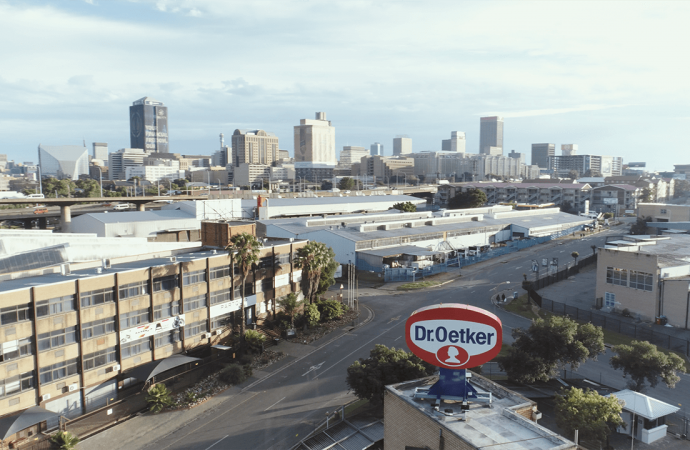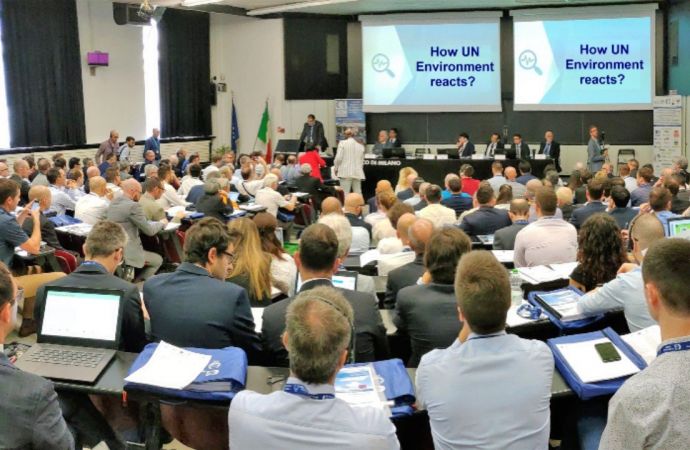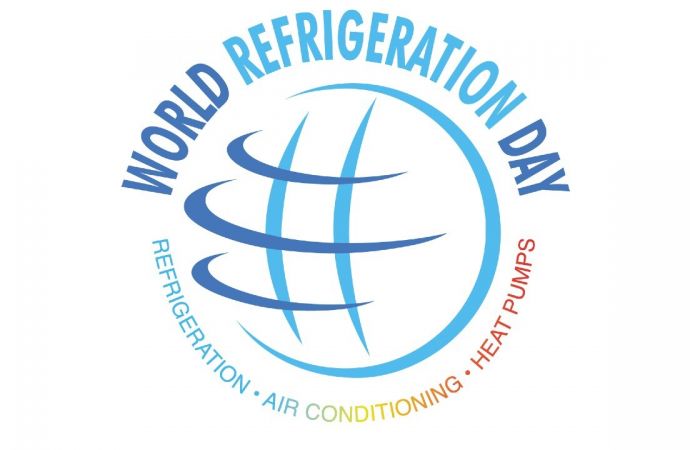BASE has published a video detailing Energy Partners Refrigeration (EPR)’s journey with cooling as a service, highlighting a new, state-of-the-art installation at a Dr. Oetker facility.

Still image from the Dr. Oetker video published by BASE.
The Basel Agency for Sustainable Energy (BASE) has released a video featuring Energy Partners Refrigeration (EPR)’s journey with cooling as a service (CaaS), particularly focusing on how it built, installed and is maintaining a new 1,671kW (475.2TR) three-stage ammonia refrigeration system for food producer Dr. Oetker in Johannesburg, South Africa.
By choosing CaaS, a servitization payment model, Dr. Oetker could focus on their core business while leaving the cooling service to the experts. This resulted in the system being optimized for operational efficiency and redundancy while achieving the lowest possible carbon footprint. Read more about this project.
Based in Germany, Dr. Oetker is a multinational food producer. In South Africa, the company produces and imports frozen pizza products and other ready-to-eat frozen meals. The ammonia system serves a new facility.
How does the CaaS contract work? What equipment was used? Is Dr. Oetker happy with the installation? How much will Dr. Oetker save by choosing this solution? The six-minute YouTube video answers all these questions and more, taking viewers inside the plant room and Dr. Oetker facilities for a closer look.
The video includes interviews with Energy Partners Refrigeration’s Dawie Kriel, Head of Business Development; Barry Drotsche, EPR's Head of Projects; as well as input from Teboga Mphehya, Group Engineering Manager at Dr. Oetker South Africa. It speaks about the potential and benefits of CaaS – not only in this project, but also for EPR to grow their business into Africa and beyond.
“Cooling as a Service… provides an opportunity for the refrigeration sector to become more environmentally responsible through the use of natural refrigerants,” Kriel concludes in the video.
Related stories



